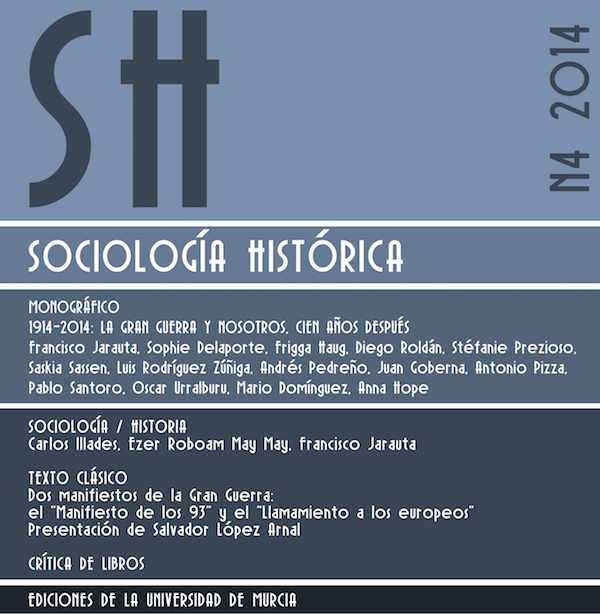Anger, Hate, Routine, Pain. First World War in Direct Testimony
Abstract
The text seeks to address a sociology of war from the soldier’s perspective. It is questioned some of the topics on the reasons for acts of war (ideological struggle, struggle for civilization, homeland defense). They are displaced for other reasons that appear repeatedly in the soldiers’ stories or memories (solidarity, brotherhood of struggle, antagonizing officers) which involve unusual aspects of combat (the massive boredom, guilt of killing, the complex relationship with rear). The intention is to provide a history of emotions in the war by analyzing the testimonies of the front. We have a huge number of letters, memoirs and other first-hand accounts that were especially abundant and were encouraged by the political and military leaders to care for the morale of the troops to the conflict in the Great War. The resulting picture suggests that war is not (only) hell and the soldier who holds a weapon is not a crazed beast. In war, acts of killing committed by historical subjects provided language, emotion and desire. In other words, the killing in wartime is inseparable from broader social and cultural issues, so that the fight does not end with social relations, but rather restructures them.Downloads
-
Abstract6393
-
PDF (Español (España))1114
Las obras que se publican en esta revista están sujetas a los siguientes términos:
1. El Servicio de Publicaciones de la Universidad de Murcia (la editorial) conserva los derechos patrimoniales (copyright) de las obras publicadas, y favorece y permite la reutilización de las mismas bajo la licencia de uso indicada en el punto 2.
2. Las obras se publican en la edición electrónica de la revista bajo una licencia Creative Commons Reconocimiento-NoComercial-SinObraDerivada 4.0 España (texto legal). Se pueden copiar, usar, difundir, transmitir y exponer públicamente, siempre que: i) se cite la autoría y la fuente original de su publicación (revista, editorial y URL de la obra); ii) no se usen para fines comerciales; iii) se mencione la existencia y especificaciones de esta licencia de uso.
3. Condiciones de auto-archivo. Se permite y se anima a los autores a difundir electrónicamente las versiones pre-print (versión antes de ser evaluada) y/o post-print (versión evaluada y aceptada para su publicación) de sus obras antes de su publicación, ya que favorece su circulación y difusión más temprana y con ello un posible aumento en su citación y alcance entre la comunidad académica. Color RoMEO: verde.










